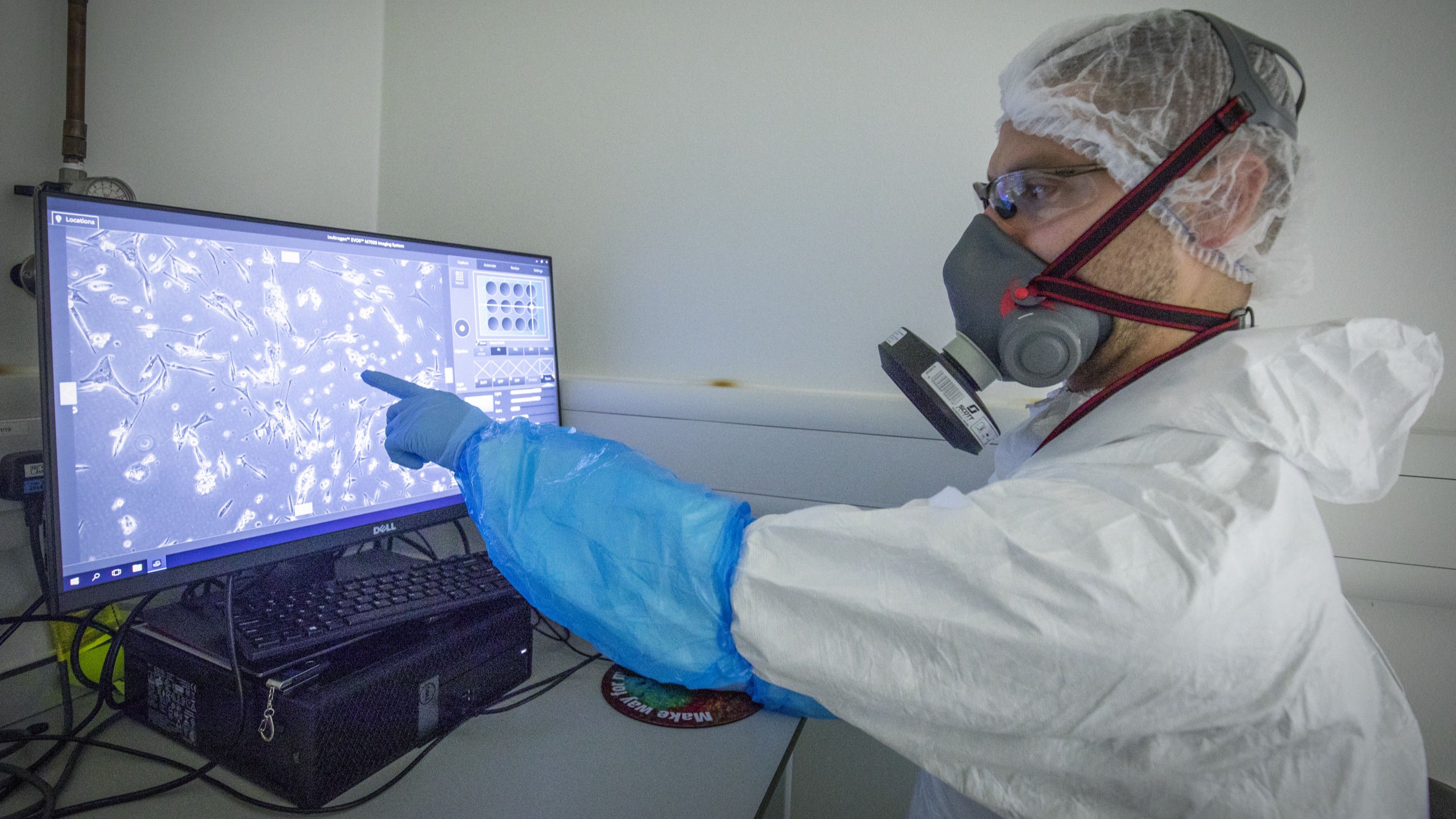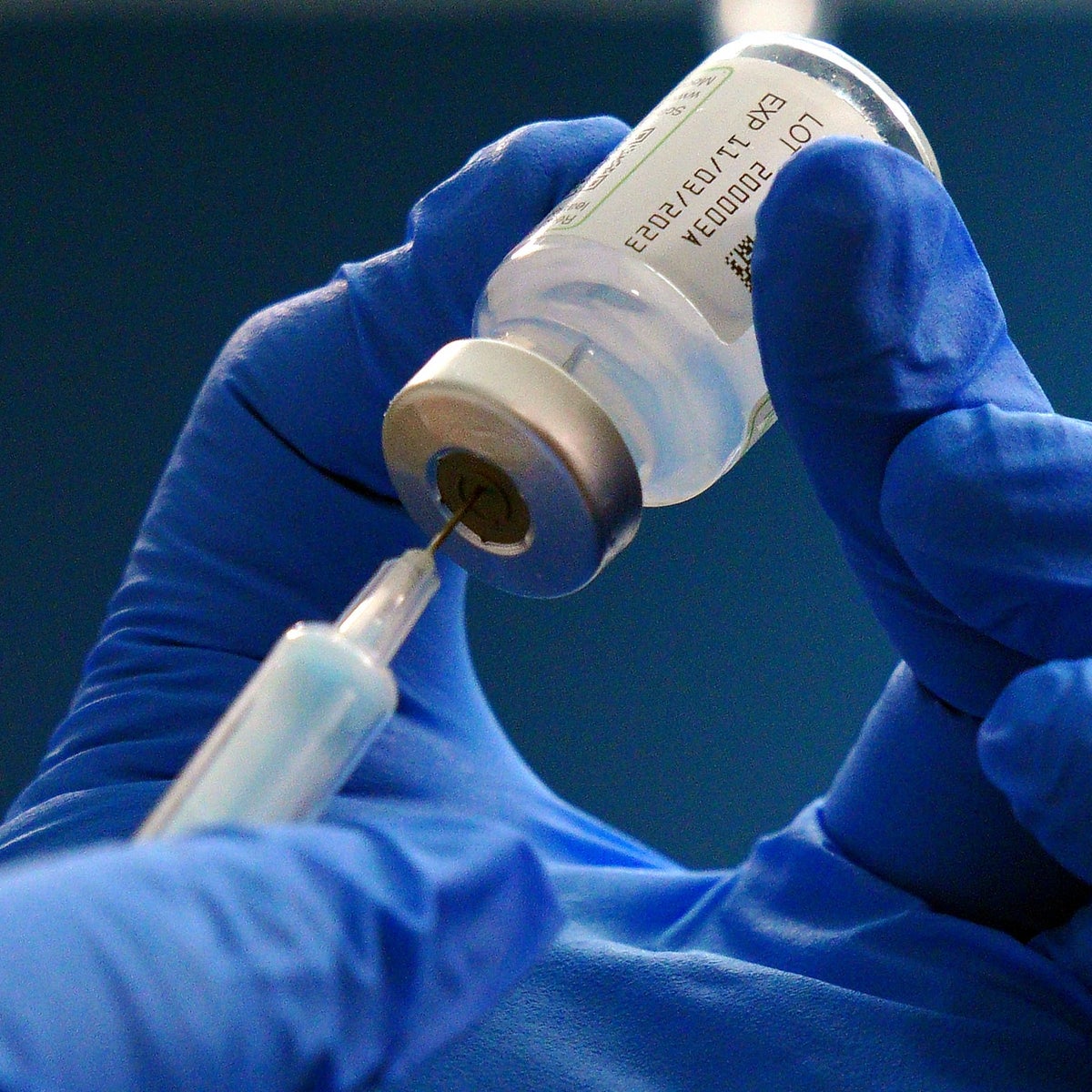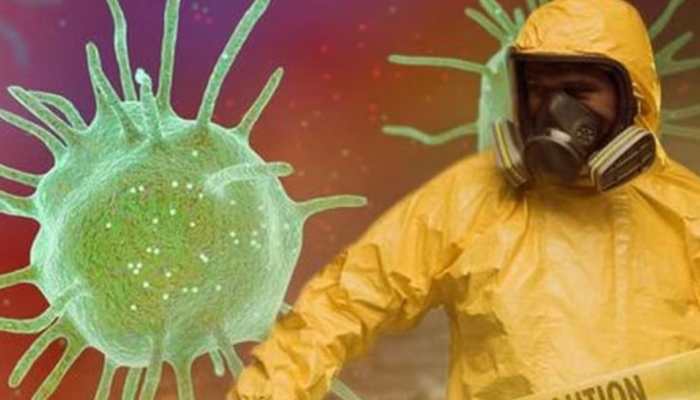Disease X- Another Global Pandemic? Over 200 UK Scientists Develop Vaccines
At the UK's high-security Porton Down laboratory complex in Wiltshire, 200 scientists have started creating vaccines as a precaution against "Disease X."

Disease X- Another Global Pandemic? Over 200 UK Scientists Develop Vaccines
Over 200 scientists in the United Kingdom have started a groundbreaking research project to create vaccinations against an unidentified pathogen known as “Disease X” in an ambitious effort to combat potential pandemic threats. The research is being carried out at the Wiltshire-based, high-security Porton Down laboratory complex of the UK Health Security Agency. Rapidly developing and testing vaccinations to stave off possible pandemics is the focus of the Vaccine Development and Evaluation Centre (VDEC) at Porton Down.
Given that it is an unidentified infection with the potential to affect communities all over the world, “Disease X” poses a mysterious threat. The VDEC team has created a thorough list of animal viruses with the possibility to infect people and spread quickly throughout the globe. The urgency and significance of this research are further highlighted by the lack of clarity surrounding the virus that could start the next pandemic.
The Vaccine Development and Evaluation Centre claims that it is capable of responding within a record-setting 100 days of spotting a new potential threat, according to assurances from the UK Health Security Agency (UKHSA). Researchers can quickly investigate as well as analyze prospective candidates for vaccine development by using live viruses in on-site secured containment facilities.

The World Health Organization (WHO), earlier during this year, recommended researchers to concentrate on studying illnesses such the Ebola, Marburg, Lassa fever, Nipah, as well as Zika viruses because they presented the greatest pandemic threats. Scientists in the UK are working on vaccinations for diseases like avian influenza, Mpox (monkeypox), along with hantavirus, a serious infection which can spread from rodents to people. These diseases include the ones which either have not yet been identified or have not yet been controlled in the United Kingdom.
In addition to testing new weaponry like lasers over the course of time, Porton Down also houses samples of fatal diseases like Ebola that may be accessed by researchers whenever needed. When a former Russian spy, his daughter, as well as an officer from the police had been infected with the nerve toxin Novichok, which was ultimately identified by a team at the facility, Porton Down made headlines throughout the world in 2018.
UK’s newly launched vaccine centre to help pandemic preparedness
The United Kingdom government has announced the Vaccine Development and Evaluation Centre (VDEC), which is a key step toward protecting the country’s health and preparing for potential pandemics. This state-of-the-art facility is located within the UK Health and Security Agency (UKHSA) science and defense technology campus vaccine center, close to Salisbury in Wiltshire. It will act as a hub for scientific research with a focus on avoiding and mitigating potential risks to the world’s health.
The main goal of the VDEC is to make sure that future pandemics are dealt with quickly and effectively, avoiding the same level of chaos and destruction as the Covid-19 pandemic. This state-of-the-art facility will be outfitted to handle live viruses in specialized containment facilities, enabling researchers to study infections that either lack vaccinations or need for enhanced immunization techniques.
The respected Chief Executive of UKHSA, Professor Dame Jenny Harries, stressed the importance of using the lessons learnt from the Covid-19 outbreak to successfully handle upcoming health crises. In her words, “What we’re trying to do now is capture that really excellent work from Covid and make sure we’re using that as we go forward for any new pandemic threats.“
The VDEC also seeks to improve the UK’s readiness for a hypothetical “Disease X” — a disease that has not yet been identified but has the potential to cause a pandemic. Scientists at the center will closely examine known dangers in order to assess the effectiveness of current vaccines against these infections, ultimately strengthening the nation’s capacity to act quickly in the event of future outbreaks.
The establishment of the Vaccine Development and Evaluation Centre demonstrates the UK government’s ongoing commitment to scientific research as well as public health safety. This world-class facility is positioned to be a driving force in global health initiatives, not just protecting the British people but also helping to the international effort to reduce the burden of infectious illnesses.
With the VDEC at the forefront of leading-edge research as well as vaccine development, the United Kingdom is well-positioned to address growing health concerns, setting an example for other countries in their pursuit of a healthier and more secure future for all.

What is ‘Disease X’?
The conceptual framework of “Disease X” was first articulated by Professor Dame Jenny Harries. According to her, “Disease X” is a theoretical concept that encompasses the uncertainty around the next infection that could create a pandemic. She stressed the importance of the UK being proactive in its preparedness, citing the scientific community’s inability to forecast which virus or organism may emerge as the subsequent global health threat.
Dame Jenny went on to say- “We don’t know what it is but we can get ready for some virus families. We can guess a little bit; we can look at changing the epidemiology of different viruses, we can look at changing climate and start to estimate, but we will never know 100%.“
This candid acknowledgment highlights the complexity and unpredictable nature of illnesses that are infectious, where all that is certain is their ability to appear suddenly and cause catastrophic effects.
Scientists at the UKHSA are closely tracking recognized infections in the interest of preparedness, and they are using cutting-edge research and development to evaluate the efficacy of current vaccinations against developing variations. The nation’s dedication to staying ahead of the curve is demonstrated by the continued efforts to battle COVID-19. The UK is establishing a standard for preventative health measures with its unwavering focus on new Covid-19 versions and testing vaccine effectiveness.
Additionally, the UKHSA is currently looking towards the creation of rapid diagnostic tools to quickly identify new and undiscovered viruses if they were to unexpectedly emerge. This important step will play a key role in launching prompt and focused responses to stop possible epidemics before they turn into pandemics.
The idea of “Disease X” may seem like science fiction, but it serves as a clear warning about the necessity of being ready and watchful in the face of a constantly shifting microbial landscape. In order to protect its inhabitants against unanticipated health disasters, the UK is leading the way in promoting scientific discoveries and strengthening public health infrastructure as the world struggles with infectious diseases.
What will happen at the VDEC to prepare for a new pandemic?
The VDEC will operate as a centre of scientific activity, equipped with cutting-edge equipment and prominent expertise, to prepare for new pandemics. In addition to researching existing dangers, VDEC experts will conduct critical research on emerging Covid-19 variations. This research will aid in the development of vaccines to tackle the virus’s ever-changing nature.
Testing newly developed Covid-19 vaccines on new varieties will be one of the center’s main goals in order to accommodate the constant evolution. The institution will also focus on illnesses including tuberculosis (TB) and is presently undertaking phase one clinical trials on a potential first-ever vaccine against Crimean-Congo hemorrhagic fever, a tick-borne virus that carries a thirty percent mortality risk.
The VDEC was established in response to the publication of the UK Health and Security Agency’s (UKHSA) three-year strategy. This strategy defines the organization’s future hazard preparedness and response plans, with a heavy emphasis on improving health outcomes through vaccine developments.

The Covid-19 epidemic has highlighted the significance of actively seeking and delivering novel vaccinations and treatments as soon as possible. The VDEC strives to stop the spread of subsequent pandemics before they have the same devastating impact as Covid-19 by focusing on scientific advances, increased surveillance, and quicker development of diagnostics, vaccines, and therapies. The VDEC’s activities are consistent with the UK’s commitment to the G7’s 100 Days Mission, the global objective planned in 2021. The mission’s goal is to have a vaccine ready for any new pandemic threat within 100 days of its discovery.
The formation of the VDEC, according to Health Secretary Steve Barclay, strengthens the UK’s global leadership in pandemic preparedness and scientific advances. He emphasized that hundreds of world-class scientists are already working at the center to develop vaccinations against possible global health risks, not only to defend the UK but also to save lives around the world.
The Association of the British Pharmaceutical Industry‘s Janet Valentine, Executive Director for Innovation and Research Policy, emphasized an important takeaway gained from the Covid-19 pandemic: the sole successful approach to combat pandemics is to take steps to discover and provide new vaccines and treatments as soon as possible. This will reduce the economic as well as personal costs brought about by pandemics and increase the likelihood of successfully combating emerging threats.
As a result, the Vaccine Development and Evaluation Centre will be critical to the UK’s preparedness for a pandemic. The VDEC aspires to improve global health security and respond quickly to any new pandemic danger by constant scientific innovation, active surveillance, and engagement with international partners, eventually saving lives as well as safeguarding communities both in the UK and around the world.
Will another pandemic happen?
Mark Woolhouse, professor of infectious disease epidemiology at the University of Edinburgh, issued a dire warning to the globe in 2021. Prof. Woolhouse warned that another epidemic with the capacity to bring widespread destruction could be on the horizon, adding that the question is not “if,” but “when.”
While pandemic flu remains a major issue, Prof. Woolhouse emphasized that a slew of other viruses require our attention as well. In 2017, he and his colleagues lobbied for “Disease X” to be added to the World Health Organization’s (WHO) list of priority diseases. The term “Disease X” refers to a hypothetical, unnamed virus that could spark the next pandemic outbreak. Given the unpredictability of viral epidemics, Prof. Woolhouse believes this is the most likely scenario.
Speaking for himself, he added, “You could use the phrase ‘it is when, not if.'” The precise timing and virus that will cause the next pandemic are unknown. The creation of a new virus is an intrinsically unexpected phenomenon, making precise prediction difficult. Prof. Woolhouse, on the other hand, emphasized that the possibility of such an event occurring is statistically plausible.
Prof. Woolhouse’s statements serve as a sobering reminder that preparedness and attention are vital as the scientific community grapples with the continuous difficulties posed by infectious diseases. Researchers, governments, as well as global health organizations must continue to be proactive in their attempts to monitor and reduce potential hazards. To be better prepared to combat upcoming pandemics, it is imperative to advance scientific research, foster international cooperation, and learn from previous outbreaks.
Therefore, even though the precise virus and date are still unknown, the warning from renowned experts emphasizes the likelihood of further pandemics. Not to incite panic, but to motivate proactive actions and strategic planning to safeguard world health and lessen the effects of potential future outbreaks, it is important to acknowledge the likelihood of a new pandemic. The international community will be in a better position to deal with and respond to the forthcoming infectious danger if research, surveillance, and preparedness initiatives are prioritized.
)



